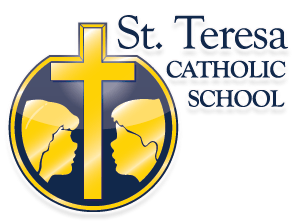How School Lunch Helps Your Child Learn
Did you know that school lunches can actually help improve your child’s learning? The USDA and National Lunch Program (NSLP) carefully craft lunches so that they meet the nutritional needs of young children. The content of fat, salt, and sugar is limited, but there is an increased amount of vitamins like iron. St. Teresa Catholic School, a Titusville private school, not only provides an excellent education, but we also focus on the health of your child. Read why our lunch meals improve your child’s health, academic performance, and social behavior.Academic ImprovementsIf your child is eating nutritious meals like the ones offered at school for breakfast and lunch, you will see an improved cognitive function and better attention spans, which lead to higher test scores and grade point averages. Short-term memory and reasoning skills improve with snacks that have nutritional value. Brain foods that can boost your child’s academic performance include blueberries, nuts and seeds, and even dark chocolate.Behavioral BenefitsYour child is still developing and the way they eat plays a huge roll in this process. With the right nourishment, your child’s behavior can make a positive change. For instance, she can get along better with her classmates and peers, while causing fewer disruptions during class. When eating properly, your child will be less likely to become sick, resulting in fewer absences throughout the year. We all irritable when hungry, and your child is no different. Encourage a positive mood by eating healthfully.Keys to a Healthy LunchNow, you’re probably wondering what constitutes a healthy lunch. Talk to your child about her options and how to make better choices. Being in school inspires a time in your child’s life when she can start making independent choices. School-aged children are often easily influenced, so talking to them about healthy food habits now will encourage a life of healthy patterns.Here’s a list of healthy food items:
- Fresh fruits and vegetables
- Milk, yogurt, and cheese, which have reduced-fat or lactose-intolerant options
- Protein such as white meat or a meat alternative, such as mean meat, peanut butter, or hard-boiled eggs
- Whole grains and cereals, such as crackers, wraps, or oats
- Lots of water
Be sure to encourage your child to avoid sweet drinks like juices and sodas, dried fruit bars that are low in fiber and high in unnecessary sugar, desserts like chocolate bars that have a high fat and sugar content, sugary jams, fatty processed meats like salami. With over 57 years of academic excellence, St. Teresa Catholic School, a Titusville private school, provides a quality education that challenges and empowers students to develop to their full potential. Students foster qualities that are essential for lifelong learning and are equipped for future success. To learn more about why St. Teresa is the perfect fit for you and your student, contact us today.
With over 57 years of academic excellence, St. Teresa Catholic School, a Titusville private school, provides a quality education that challenges and empowers students to develop to their full potential. Students foster qualities that are essential for lifelong learning and are equipped for future success. To learn more about why St. Teresa is the perfect fit for you and your student, contact us today.
